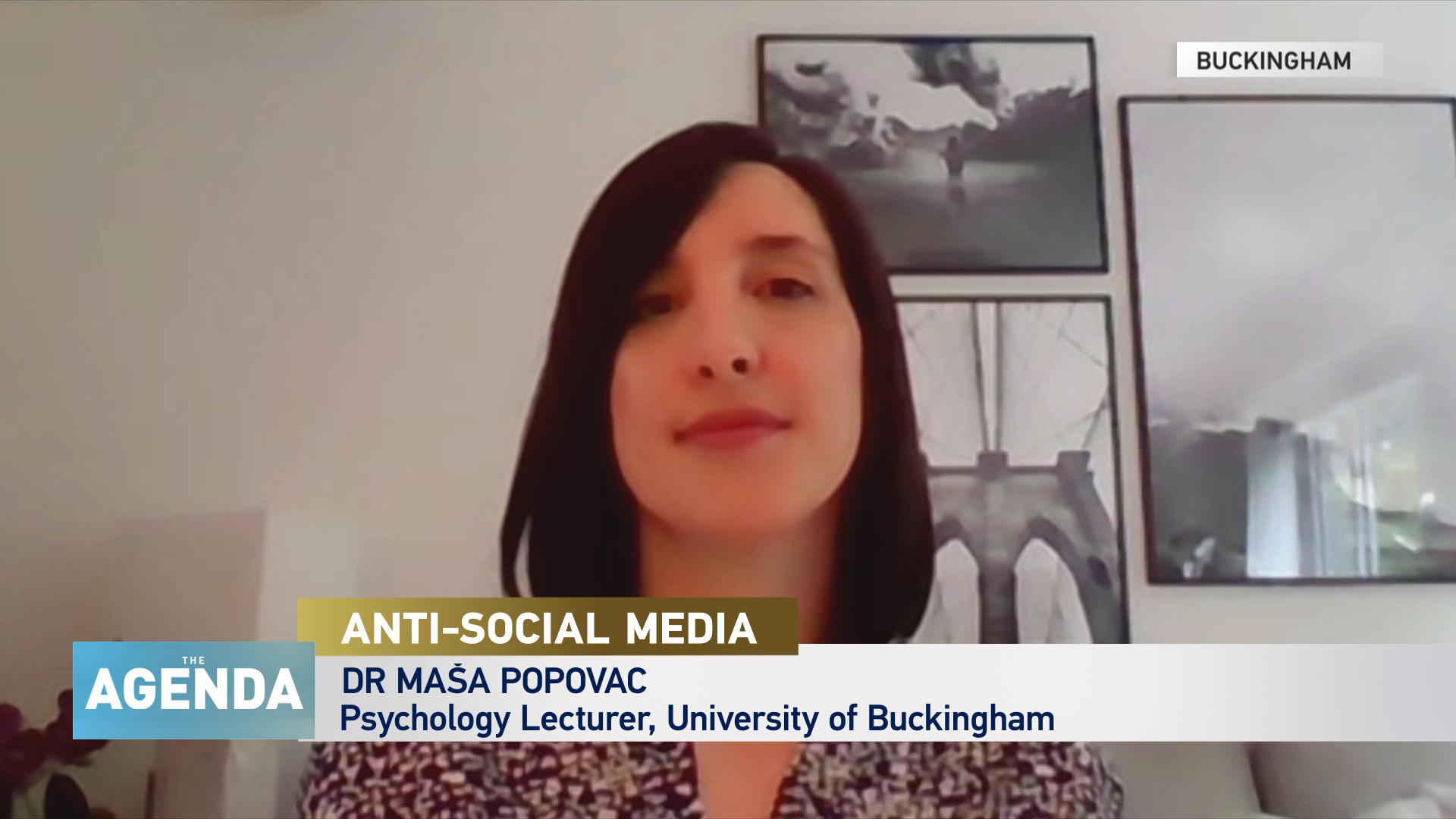05:34

WHAT'S THE ISSUE?
The outbreak of COVID-19, along with the lockdowns that followed, has certainly increased the time that people are spending in front of their screens. Because of the social distancing it could be argued we're losing sight of our social norms in the process. The result? An astronomical rise of online trolling during the pandemic.
But while online aggression seems to be getting worse, it certainly isn't a new phenomenon. In 2017, the University of Buckingham published a study which showed that 43 percent of adolescents in the UK experienced some kind of cyber-bullying in the space of a year.
Although cyber-bullying is largely an issue faced by school children and young adults - the long term impacts on adult life can be incredibly damaging.
The woman who led this 2017 study is Maša Popovac, a lecturer in psychology at the University of Buckingham - she explains to Stephen Cole why cyber-aggression needs to be urgently addressed.

MEET THE EXPERT
Maša Popovac is a lecturer in psychology at the University of Buckingham.
During her PhD, Popovac was a visiting lecturer in Psychology and became a full-time lecturer in 2017.
She teaches the core Developmental and Social Psychology modules. Popovac did her PhD in cyber-aggression and online risk experiences among adolescents.
She is also a contributor to the government learning platform 'Apolitical' where she writes about how to prevent cyber-bullying.

WHAT DOES POPOVAC SAY?
Social media has evolved significantly since the early days of MSN Messenger and chat rooms of the early years of this century.
"Just think of the number of platforms that are available to people and how easy it is to share information at rapid speeds," Popovac explains.
This boom in size and speed means situations can escalate quickly and often out of control.
"This is concerning for people because often it means that images and information about you can be shared beyond the boundaries of your school or workplace."
She also believes that there is a clear gender difference in the difficulties faced online - "some types of harassment like revenge porn and the sharing of nude images are worse for girls" she explains to Stephen Cole.
"But in terms of prevalence rates, cyber-aggression affects a wide range of the population - the issue needs to be addressed overall."


WHAT'S NEXT?
Popovac believes that without proper handling of cyber-bullying in early years - the long term effects will be immense. "Anxiety, depression, self-harm are all consequences that will go on to impact the careers and personal lives of these young victims."
But the question of how to regulate the social media sites belonging to big tech is one of the hardest facing the modern world. Is the answer to introduce tight regulation? Or simply find a way to ban anonymous accounts?
"Where does a teacher's or parent's responsibility end and a social media provider's begin?" Popovac says. "We don't have these boundaries mapped out neatly - and that is our main problem."

ALSO ON THE AGENDA:
Instagram saw the most new users of any other platform during the pandemic. To get an insight into why it's so addictive Stephen speaks to writer Bella Younger. The self-described 'accidental influencer' explains how she became so obsessed with checking her phone that she ended up in rehab for a social media addiction.
Also in the show is Professor Yvonne Kelly, the Director of the ESRC International Centre for Life Course Studies at UCL. She explains how her study concluded that 14-year-old girls were twice as likely to show depressive symptoms linked to social media use when compared with boys of the same age.
Plus - should mobile phones be banned in bedrooms or even schools? Stephen speaks to cyber-bullying campaigner Charley Oliver-Holland about her experiences online and how to silence the trolls.

